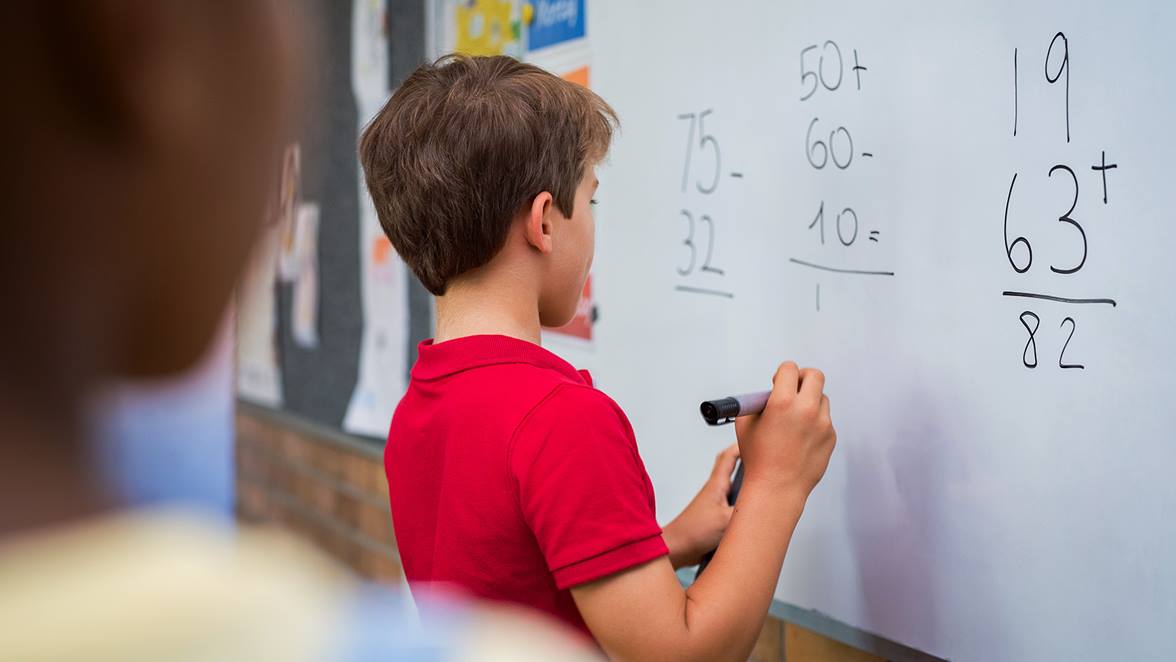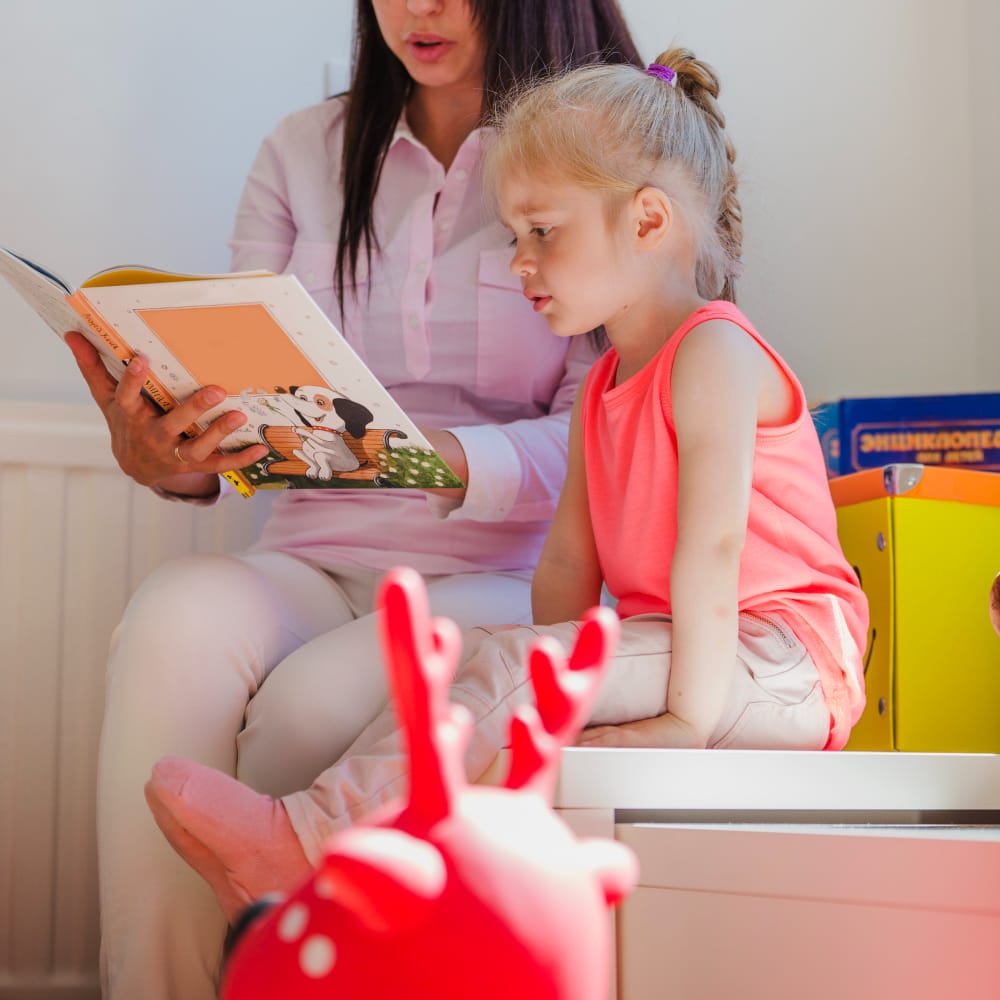Dyscalculia in children my be less well know, but its effects can be just as devastating as that of its more famous cousin: Dyslexia. Where Dyslexia is a reading disability, Dyscalculia is a maths disability. It makes it difficult for kids to comprehend number and quantity concepts like bigger and smaller. Maths symbols may be really confusing for them and they may not remember how to follow the procedures for more complicated maths calculations. Having dyscalculia doesn’t mean that kids aren’t smart. It just means that they struggle to apply what they know in solving maths problems.

Let’s look at some Dyscalculia basics to better understand this learning difficulty:
What Dyscalculia in children looks like:
Maths can sometimes be a complicated subject and it’s normal for kids to struggle with some concepts from time to time. But children with Dyscalculia struggle a lot and all the time. They may have trouble remembering the sequence in which numbers occur. Or they may forget maths facts and what functions the different symbols represent. Sometimes it may be difficult for them to hold numbers in mind while trying to use them in solving a maths problem.
It’s a myth that boys are better at math than girls. Similarly experts agree that boys are just as likely to have Dyscalculia than girls.

Dyscalculia in children looks different as children age:
Not everyone with Dyscalculia struggles in the same way. Symptoms may vary from child to child. And it often looks different at different ages, becoming more noticeable as children get older. Here’s what to look out for:
Preschool
- Your child may take longer to learn to count than his friends at school and may skip over numbers without noticing.
- He may not be able to follow simple sequences, like stringing coloured beads in the same order shown to him as an example.
- She may struggles to understand concepts such as longest, biggest, last, first, most and least.
- Recognizing patterns, such as realising six dots on a domino represents the number six, may be hard.
- Trouble recognizing number symbols (for example knowing that “8” means eight)
- Can’t apply the one-to-one concept of object counting. So given eight block to count your child may repeat the number sequence 1 to 10 verbally, but might not understand that each number is supposed to represent one block.
Primary School – Foundation phase
- Counts incorrectly on his fingers while adding or subtracting
- Has difficulty remembering basic math facts, such as 1 + 3 = 4
- Struggles to identify maths symbols such as +, – and uses them incorrectly
- Doesn’t understand what word sums require him to do. For instance not understanding that “less than” requires him to subtract.
Primary School – Intermediate phase
- Uses place value incorrectly, often writing numbers in the wrong column
- Writing poorly formed or reversed numbers
- Difficulty in understanding the underlying concept of functions such as division or fractions
- Forgetting his score during board games or when playing sport
High School
- Not being able to figure out charts, graphs or maps.
- In inability to work effectively with money such as working out a tip, making exact change or estimating the total cost of an outing.
- Difficulty understanding metric system units – like knowing that 100 centimetres makes up a meter
- Rigidly applying the same approach to each maths problem
Children with Dyscalculia may have other learning difficulties as well:
Some co-morbid conditions may have symptoms that can look like dyscalculia. These are:
ADHD: Children with ADHD often also have Dyscalculia. Sometimes not concentrating or acting impulsively (symptoms of ADHD) may cause children to make math errors. If you suspect that this may be the case, it would be best to first focus on getting ADHD symptoms under control before looking further into a Dyscalculia diagnosis.
Dyslexia: Between 43% to 65% percent of children who have reading disabilities also struggle with maths. Here it is important to first establish whether the child is just reading word sums and number sequences incorrectly, or whether he really struggles to understand them too.
Difficulties with working memory: When children struggle with working memory they may forget which number came first in a word sum. Or they may be halfway through a calculation and then forget which number they had to keep in mind.
Mental blocks: When children are feeling nervous about maths, they often will tell me “I can’t do maths” before I’ve even given them a maths worksheet. This then becomes a self-fulling prophecy – because of their anxiety they aren’t concentrating on the task and make mistakes. But when we are able to test basic concepts in isolation we discover that they have the ability to fully understand maths. In this case it is often best to treat the anxiety first and to build a child’s belief in their own abilities before we initiate maths remediation.
Genetic disorders such as Gerstmann’s syndrome, Turner’s syndrome and fragile X syndrome have also been associated with Dyscalculia.
Possible Causes of Dyscalculia
We’re not quite sure yet what exactly causes dyscalculia. But early research suggests that it has something to do with differences in brain structure and function.
Some possible causes of dyscalculia include:
- Environment: Children who have born prematurely, or with a low birth eight or with foetal alcohol syndrome often seem to develop Dyscalculia.
- Genes:It also tends to run in families as children with Dyscalculia often have a parent or sibling who also struggles with this disorder.
- Brain development: Brain scans have shown that areas in the brain associated with processing numbers and math concepts are structured somewhat different in people with Dyscalculia . Key learning skills like memory and planning are also associated with these areas, which may explain some of the symptoms we see with this disorder.
- Brain injury: Acquired dyscalculia can occur when certain areas of the brain, more specifically in the right hemisphere sustain injury.
For more information about understanding dyscalculia, contact Anel Annandale at 021 423 0739 or via email at anel@childpsych.co.za.




